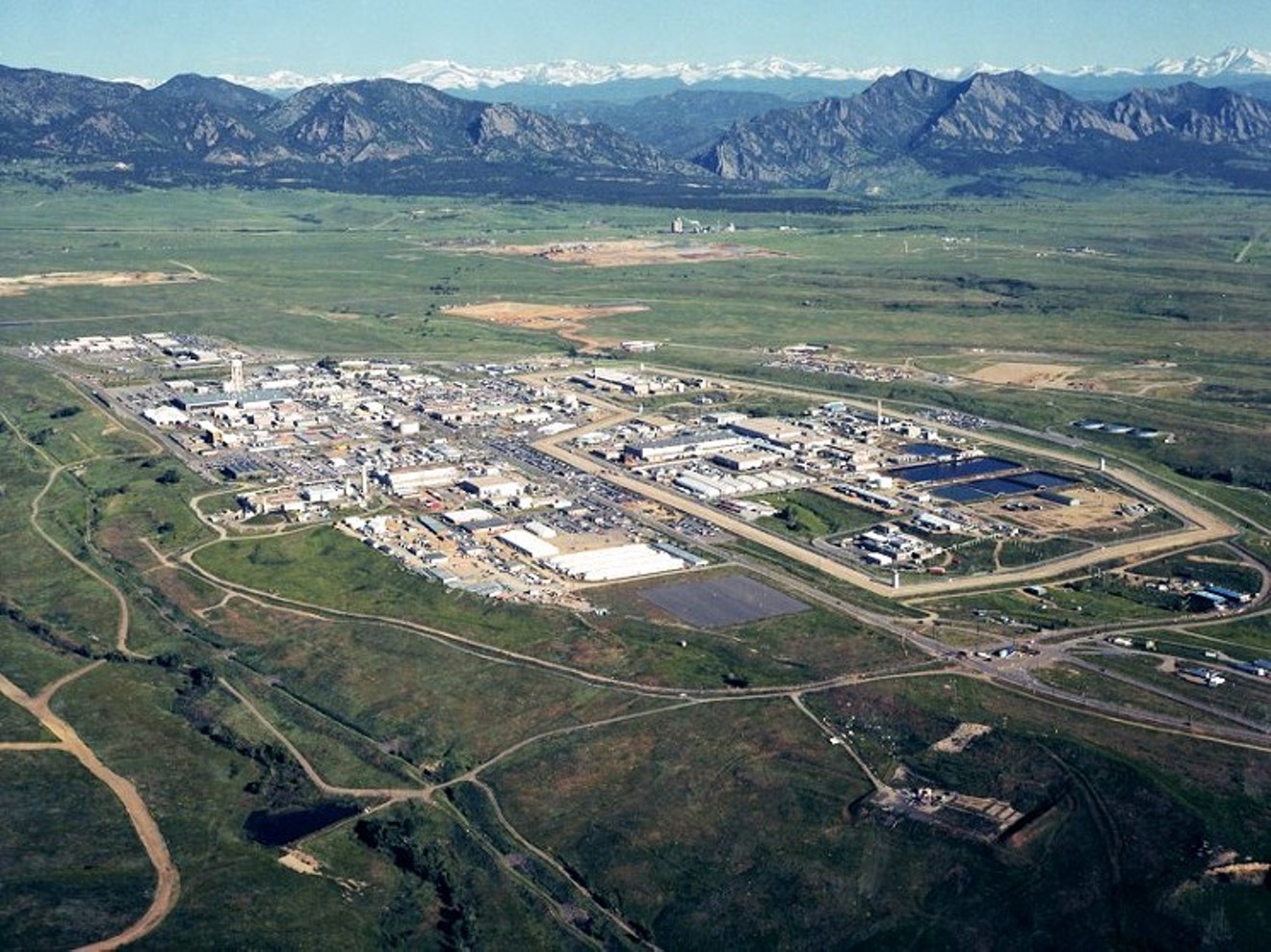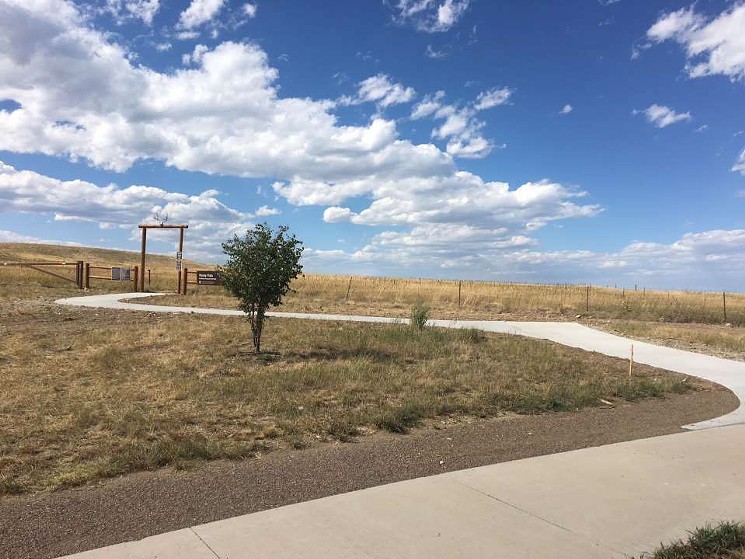Thirty years ago, on August 1, 1989, Colorado impaneled its first-ever special grand jury, a group of nearly two dozen citizens from every corner of the state who were charged with considering evidence seized two months earlier in an FBI raid of the Rocky Flats Nuclear Weapons Plant, a facility sixteen miles upwind of Denver dedicated to manufacturing plutonium triggers for bombs.
The grand jurors did their duty, and after close to two years of deliberations determined that eight individuals — including officials with the Department of Energy and employees of Rockwell International, which ran the plant for the DOE — should be charged with environmental crimes. Instead, the Department of Justice told the grand jurors to go home, and then in March 1992 cut a deal with Rockwell, which was fined $18.5 million — less than the bonuses it had been paid to operate the plant. The settlement also indemnified individuals and covered Rockwell's legal bills.
And the work that the grand jurors had done on the case was sealed.
In January, attorney Pat Mellen filed a motion in federal court on behalf of seven groups — Alliance of Nuclear Workers Advocacy Groups, Rocky Flats Downwinders, Candelas Glows/Rocky Flats Glows, Environmental Information Network, Rocky Flats Neighborhood Association, Rocky Flats Right to Know and Rocky Mountain Peace & Justice Center — asking that the grand jury files be made public, in order to determine if the government had sufficiently cleaned up the site before over 6,000 acres of it was opened to the public as the Rocky Flats Wildlife Refuge last September.
But it seems there's a problem: The Department of Justice can't find the files, more than sixty boxes of documents.
Mellen learned this in a July 24 email from the U.S. Attorney's Office in Denver (read it below). She now plans to file another motion on July 31, asking the judge to order the feds to find the documents within thirty days.
"Petitioners have sought the disclosure of business records provided to and considered by the Rocky Flats Special Federal Grand Jury 89-2," the motion reads. "These records have been the subject of great controversy for now thirty (30) years since the impanelment of this Special Grand Jury on August 1, 1989. The records are a unique resource documenting the history of environmental crimes at Rocky Flats. The public has a clear right to expect that the DOJ fulfill its duty to secure and maintain grand jury records. DOJ personnel have a plainly defined duty as sole custodians of these records to ensure that they can at a minimum state the location of records associated with grand jury cases. Petitioner has respectfully asked twice, and after six (6) months DOJ remains unable to confirm the records’ location(s). No other administrative means or procedures exist for Petitioners to require that DOJ fulfill its duty of safeguarding and maintaining these records. No other remedy is available than for this Court to require that DOJ commit the resources necessary to locate the records sought."
The grand jurors have always wanted to talk about what's in those files, but have been threatened with contempt of court if they break confidentiality. Even so, enough told us what had happened behind closed doors that we were able to publish "The Secret Story of the Rocky Flats Grand Jury" on September 30, 1992, detailing their desire to indict the eight individuals and warn the public about what still lay below the surface at Rocky Flats.
Wes McKinley, the grand jury foreman, ran for Congress in hopes that congressional immunity would allow him to speak. He didn't win, but he spoke up anyway as one of the co-authors of The Ambushed Grand Jury. And Jon Lipsky, the FBI agent who led the June 6, 1989, raid on Rocky Flats, has been talking and testifying since he left the agency (during his tenure there, he was gagged). Despite the fact that Rocky Flats was the subject of a $7 billion cleanup, Lipsky believes that the place is far from safe. During the raid and subsequent investigation, he located many of the documents that were presented to the grand jury, later sealed...and are now lost.
In her January filing, Mellen had argued: “The documents gathered by the Grand Jury and now under seal are a unique resource that provides the detailed evidence of whether specific locations or hot spots of unremediated or undiscovered hazardous substances must outweigh a site-wide ‘safe’ determination made for other purposes."
Among other things, the grand jurors had investigated allegations that the plant had lost plutonium. Some was later located in ducts and other parts of the facility. But like the grand jury's documents, more is still among the missing.
Does anyone know where those grand jury documents might be? Last we heard, they were allegedly in the federal courthouse, under the watch of U.S. District Court Judge Richard Matsch, whose cases included yet another request from the grand jurors to be allowed to tell their story. But Matsch passed away this past May.
Before he passed away in 2006, Finesilver and his wife had donated more than 180 boxes to the DPL, with the stipulation that they be kept closed until 2009. That's when Dudley started cataloguing the incredible material the federal judge had left the library, material that ranged from documents on German restitution to swine flu to the Rocky Flats grand jury.
"When I began going through the grand jury materials, I ran across various forms of the grand jury report that were clearly marked as 'not for public release,' and wanted to find out if there was a time limit on such materials in order to restrict them," Dudley recalls. "I wanted to protect the library from liability."
After calling around, he finally reached Gregory Langham, clerk of the U.S. District Court, who came down with an attorney to look through two boxes. Later, Langham returned to the library with a judge and examined still more documents, then wrote a letter requesting that certain items be returned to the court — including everything involving Rocky Flats. "Which we did," Dudley says. We've got the perfect spot to store them here at Westword.
[
{
"name": "Air - MediumRectangle - Inline Content - Mobile Display Size",
"component": "12017618",
"insertPoint": "2",
"requiredCountToDisplay": "2"
},{
"name": "Editor Picks",
"component": "17242653",
"insertPoint": "4",
"requiredCountToDisplay": "1"
},{
"name": "Inline Links",
"component": "18838239",
"insertPoint": "8th",
"startingPoint": 8,
"requiredCountToDisplay": "7",
"maxInsertions": 25
},{
"name": "Air - MediumRectangle - Combo - Inline Content",
"component": "17261320",
"insertPoint": "8th",
"startingPoint": 8,
"requiredCountToDisplay": "7",
"maxInsertions": 25
},{
"name": "Inline Links",
"component": "18838239",
"insertPoint": "8th",
"startingPoint": 12,
"requiredCountToDisplay": "11",
"maxInsertions": 25
},{
"name": "Air - Leaderboard Tower - Combo - Inline Content",
"component": "17261321",
"insertPoint": "8th",
"startingPoint": 12,
"requiredCountToDisplay": "11",
"maxInsertions": 25
}
]













